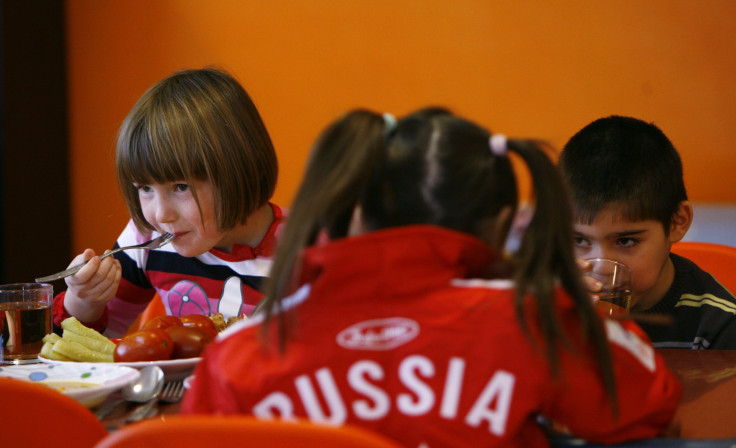Nyet! Russia May Ban Adoption For Gay Couples In Britain, France

Russian officials have said that moves by the British and French governments to approve same-sex marriage in their respective countries will preclude couples of such unions from adopting Russian orphans.
"The British and French parliaments have legalized same-sex marriages," Konstantin Dolgov, human rights envoy at the Russian foreign ministry, said, according to the Telegraph. "This narrows the chances of citizens of these countries adopting Russian children.”
Pavel Astakhov, Russia’s children’s rights ombudsman, specifically said same-sex couples in France would not be allowed to adopt Russian children in a recent statement, according to Russia Today.
Astakhov cited the Russian constitution’s strict definition of marriage as a “union of a man and a woman,” as the reason for this policy.
“The official position on gay marriages is stated in Russian official documents, the family code and the constitution,” he said. “They put it straight that the marriage is a union of a man and a woman. We do not have anything else. Period.”
Boris Dittrich, advocacy director for the Lesbian, Gay, Bisexual and Transgender Program at Human Rights Watch, said his organization disagreed with the Russian officials’ statements and that, although it is within the Russian government’s jurisdiction to decide who can adopt children from within the country, “the best interest of the child” should be considered.
“The sexual orientation of the parents is irrelevant,” Dittrich said. “So long as the parents provide love and affection to the child -- that is the most important.”
“This is really in line with the homophobic attitude of the Russian government,” he added, citing the recent passing by the Russian parliament of a ban against promotion of gay rights in public.
Adoption Ban For American Couples
The Russian statements follow a controversial ban on adoption by American couples, which was passed in December.
Moscow claimed that it had implemented the prohibition, because Russian children were being abused by their adoptive parents in the U.S., citing the case of Dima Yakovlev, a Russian toddler who died in 2008 after being left in a locked car for nine hours by his adoptive father.
The ban, however, has been widely viewed as retaliation for the U.S. approval of the Magnitsky Act two weeks earlier, a law that allowed the U.S. government to sanction Russian officials suspected of human rights violations.
Russian legislator Leonid Kalashnikov, who was not present for the vote on the U.S. adoption ban, described the law as vindictive.
"The Kremlin didn't really want to spoil relations with the United States but couldn't leave an unfriendly act unanswered," Kalashnikov said, the Los Angeles times reported. "So they let off steam by using the fate of thousands of orphans as a lever of political pressure."
There are currently more than 700,000 orphans in Russia, increasing at a rate of 113,000 children every year, according to the Russian Children’s Welfare Society based in New York.
© Copyright IBTimes 2024. All rights reserved.





















